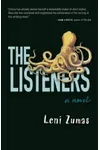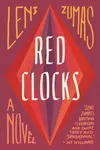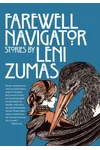Picture a storyteller who weaves haunting tales of identity and resilience in a world where societal norms clash with personal truths—meet Leni Zumas! This American author, celebrated for her lyrical prose and fearless exploration of motherhood and freedom, has carved a unique space in contemporary literature. From her novels to her role as a creative writing professor at Portland State University, Zumas’s work resonates with readers craving stories that challenge and inspire.
Born in Washington, D.C., and now a proud resident of Portland, Oregon, Zumas brings a poetic edge to her fiction, blending speculative elements with raw human experiences. Her novels, like the acclaimed Red Clocks, have earned her a spot among today’s most thought-provoking writers. Ready to dive into her world? Let’s explore the life and legacy of Leni Zumas!
The Making of Leni Zumas
Leni Zumas grew up in the vibrant hub of Washington, D.C., where her fascination with maps, ships, and the unconventional sparked early. She pursued English at Brown University before earning an MFA in Creative Writing from the University of Massachusetts Amherst. Her academic journey laid the foundation for a career that blends teaching and storytelling. Before settling at Portland State University, Zumas taught at prestigious institutions like Columbia University and Hunter College, honing her craft while inspiring others.
Her love for the atypical shines through in her writing, influenced by her experiences as a drummer in a punk-rock band and her introspective nature. These eclectic roots shaped Zumas into a writer who isn’t afraid to push boundaries, crafting narratives that feel both intimate and universal.
Leni Zumas’s Unforgettable Stories
Zumas’s bibliography is a treasure trove of innovative fiction. Her debut, Farewell Navigator: Stories (2008), is a collection of short stories about outsiders navigating life’s fringes. From a lonely woman tending sick animals to a small-town girl chasing dreams with a rock band, these tales pulse with raw emotion and poetic flair. Critics, including Miranda July, praised its ability to embrace the beauty of darkness.
Her first novel, The Listeners (2012), follows Quinn, a former punk-rock star grappling with grief and a tragic childhood. This hypnotic story, a finalist for the Oregon Book Award, blends memory and loss in a world where ghosts linger. Zumas’s lyrical style and experimental structure captivated readers, cementing her reputation for crafting complex, unforgettable characters.
The crown jewel, Red Clocks (2018), is a national bestseller and winner of the 2019 Oregon Book Award. Set in a dystopian America where abortion and in-vitro fertilization are illegal, it follows five women navigating motherhood, identity, and freedom. Compared to The Handmaid’s Tale, its bold narrative and sharp social commentary earned it a spot on Vulture’s list of the 100 Most Important Books of the 21st Century. Her forthcoming novel, Wolf Bells, promises to continue her tradition of provocative storytelling.
Why Leni Zumas Matters
Leni Zumas’s impact on contemporary American literature lies in her fearless exploration of women’s experiences. Her work tackles timely issues—reproductive rights, societal expectations, and personal agency—with a blend of speculative fiction and poetic realism. By giving voice to marginalized characters, she challenges readers to question norms and embrace resilience. Her influence extends beyond the page as a professor, shaping aspiring writers in Portland State’s MFA program.
Zumas’s ability to merge the personal with the political has made her a vital voice in today’s literary landscape. Her stories don’t just entertain—they spark conversations, making her a beacon for readers seeking meaning in turbulent times.
- Born: Washington, D.C.
- Key Works: Farewell Navigator (2008), The Listeners (2012), Red Clocks (2018), Wolf Bells (forthcoming)
- Awards: 2019 Oregon Book Award for Fiction, finalist for the Orwell Prize for Political Fiction
- Current Role: Associate Professor, Portland State University
Snag Red Clocks or The Listeners and dive into Leni Zumas’s mesmerizing blend of dystopia and poetry! Her stories will leave you thinking long after the final page.


